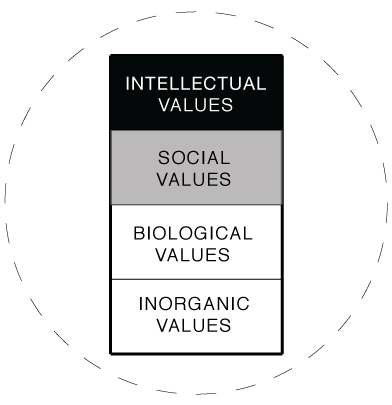This post is the first of a series of short intellectual analysis of different values. Competition is somewhat misunderstood and misused as a value within our culture. As with most values it's understood within our culture by the myths that support it. Below is a Metaphysics Of Quality (MOQ) based investigation into this value and a key myth that forms our modern day understanding of it...

Like to compete? I don't. Too numerous a time have I been hurt by someone competing without realising we were even doing so. Competition at the wrong time can bring down even the staunchest of competitors when, without realising, after trusting his teammate, he is suddenly blindsided by highly competitive and selfish behavior.
But beyond this kind of once off usurping of usually good competitors - constant competition within the workplace or within teams can be detrimental to team members mental health and physical wellbeing. Propagating continual stress and fear of losing out is not a good environment to be around and yet my experience is that it infects many a workplace and teams..
And so for this reason, I'd like to delve into this value some more and gain a better idea of the good and bad of competition and what, if any, insight the Metaphysics of Quality (MOQ) can bring..
As I see it there's two good things about competition.
-
Competition supports the fact we are social creatures who value social status.
We cannot ignore social values and the inherent social rankings that go with them. As human beings who are social creatures it is only natural that we enjoy a certain amount of competition and the potential increases in social standing that go with them. Therefore it's about finding the right kinds of competition that are 'healthy' and those that are not. Competition between teams for instance; with the right playful attitude can be very healthy and productive. That is whilst still allowing for intra-team or intra-company co-operation and all of the shared social and cultural benefits that go with it as well.
But to be clear what it does not support is selfish individuals acting only for their own benefit at the expense of the larger group or team. Using the language of the MOQ - that is called putting ones own social standing or celebrity status above that of the team when it doesn't make intellectual sense to do so. In other words; that is called valuing social quality over intellectual quality and is immoral in the MOQ.
-
Competition that comes about as a result of opening up a system is a secondary good to its openness.
By avoiding groupthink or group polarisation, and opening up a system whereby different solutions can be created to a problem; the best solution will then be able to naturally arise. Once this has occured - each of the solutions could be said to be competing but that isn't necessarily a motivation for these 'competitors' and isn't necessary for different options to be proposed.
Capitalism actually works in this very way. It's not the fact that companies are competing with a love for the social value of competition that capitalism works (although this can help with the right kind of competition as described above in the first example). It's because capitalism is more open to Dynamic Quality and simply allows for multiple solutions to the same problem to arise. From those solutions it then has a built in monetary mechanism for rewarding the best solution.
Which brings us finally to the key modern day myth of 'selfish capitalism' that underpins many an immoral intra-company competitors thinking. It also happens to be a key myth which at least most layman have heard of and understand regarding captialism. And as I will explain it is an understanding that without moral context - allows the propagator to get away with immoral behavior.
'Selfish capitalism' - a myth named which, whilst not named this way by its proponents, is essentially what it is. This myth has a person, who is a ruthless competitor and who is only out for themselves, and who will do just about anything and break just about any moral code, all in the name of money.
This is the strength of capitalism a neoliberal might tell you. A kind of individual John Galt figure out against the world.
'A person who is only out for himself, competing, and succeeding, gaining celebrity and money. For how could they succeed any other way? Isn't that what capitalism is all about? Competition? Breaking and bending rules is all part of the game!'
A standard modern day capitalist.
But this myth with its roots in the value of competition - neglects the first good of the importance of healthy co-operation and the morality of respecting the health of the team and not valuing ones own social status over the team. And it completely ignores the second good whereby different solutions to a problem arise not directly because of competition but because capitalism is more open to Dynamic Quality than any of its alternatives!
But from this investigation we can see that the Metaphysics of Quality can morally support a new myth! One still of an individual within a capitalist system. But rather than selfishly competing - is healthily competitive yet isn't driven just by this competition; they know what's right and wrong; they appreciate that there's more to live for than money and social status; and also they can see the old myth for what it is and was - logically immoral.




